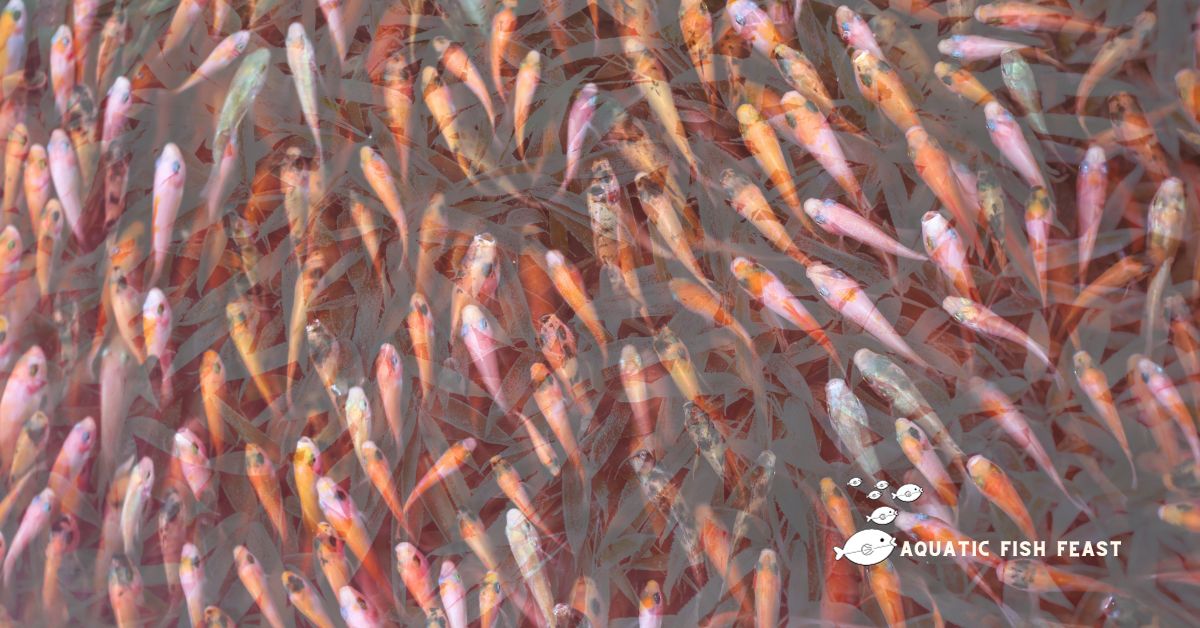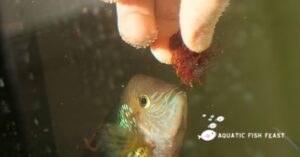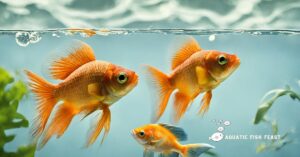Do you want to know how long fish can go without food? Yes, I want to know how long fish can go without food.
As hypothesized in previous years, individuals can believe that their pet fish can sustain themselves for extended periods without food. However, it is crucial to acknowledge that this mistake has the potential to pose a significant threat to the well-being and survival of these aquatic creatures.
The duration for which a fish can sustain itself without food is contingent upon several aspects, encompassing the prevailing environmental conditions, the overall health of the aquarium, the specific species of fish, and the extent of preparation undertaken in anticipation of the owner’s departure.
In general, it is observed that most fish species can endure three days to two weeks without consuming food. However, it is not advisable to presume that your fish can sustain themselves for such durations without the presence of a carer during your absence.
Fortunately, the maintenance of fish is very straightforward, enabling individuals to adequately provide sustenance for their aquatic pets, regardless of the duration of their absence, be it a prolonged weekend or a whole month.
What is the maximum duration that fish can survive without food? Numerous species of fish exhibit varying durations of survival without sustenance, therefore prompting an examination of the determinants influencing their ability to endure periods of food deprivation, as well as the optimal frequency of feeding intervals. And that is exactly what I will explore in this article as you read further.
Now let get started.
Table of Contents
I Am Going On Holiday For A Week. Can My Fish Be Left Without Food
The type of fish you have will determine this. The majority of cold-water fish can survive one week without meals.
Tropical fish, however, typically require more frequent feedings. Several solutions exist for feeding your fish while you’re away.
You can use holiday blocks, such as King British Holiday Food Blocks or King British Weekend Feeders, which release the food slowly into the water overnight; you could ask a friend or neighbor to feed your fish.
If you ask someone else to remove your fish, leave specific instructions to ensure they do not over-feed it.
How Long Can Fish Go Without Food
Depending on the species, fish can often last three days to two months without food. This is just a brief answer for our readers. Because fish species differ, there isn’t a simple solution to this.
Let’s examine a few instances. After mating, cichlids are renowned for having protracted fasts. When the female cichlid cares for her young, the mouth-brooding stage can last up to a month. That’s some serious parental commitment right there!
Since they lack a stomach, other fish, such as Mandarian Gobies in saltwater aquariums, must feed. Because they cannot fast, flora like copepods must continuously feed these fish.
As you can see, you can go to the extreme ends of the spectrum with fish! Let’s understand why a fish would fast and the various factors determining how long your fish can go without food.
How Long Can Pet Fish Survive Without Food
Fish seldom get to eat every single day in the wild.
Some of them will go for extended stretches without eating.
For instance, an African Cichlid female who is mouth-breed can go up to a month without eating while keeping fry in her mouth.
Following that, below is the typical freshwater fish’s maximum fasting duration:
A mature, healthy aquarium fish may go anywhere from three days to a full week without eating. Some fish species, including gouramis and oscars, may go up to two weeks without feeding.
Whether in the wild or an aquarium, a mature fish has enough body mass and fat stores to periodically skip multiple meals.
Therefore, if you plan a weekend away, you don’t have to worry if your fish will survive without being fed.
How Can You Feed Vacationing Pet Fish Who Are Starving
If you have a longer vacation planned, you’ll need to ensure your fish are cared for. Here are some common ways to ensure your fish don’t need to go without food!
1. Feeder, Automatic
You may be certain that leaving your aquarium without food supplies for the weekend won’t be a problem because you know that fish are tougher than we often imagine.
With an automated fish feeder, you can plan a feeding schedule and regulate the food served at each meal.
By doing this, you may be confident that your fish will have long and healthy lives without you.
Of course, you can ask a friend or family member to feed your animals.
This technique, meanwhile, runs the danger of the keeper overfeeding your aquarium fish.
This might result in an ecologically unbalanced fish tank, which could cause additional problems, such as a rise in ammonia levels. Or a rash of tiny worms, which, depending on the species, might be harmful to your prawns.
2. Holiday Feeder
You may also use our Vacation Feeder with gradual release to make feeding your fish easier.
Although I haven’t tried it, I know a few individuals who have, and it was successful for them.
The pyramid dispenses food gradually over time after being lowered into the tank.
However, the amount of food the fish eat will not be under your control if you select this option. It can be finished or unfinished when you get back.
How Are Active Your Fish Without Food
How long your fish can go without food depends heavily on the metabolism of your fish. Smaller fish are very active and need more food than slower, larger fish.
Small, schooling predators like Tetras and Rasboras tend to be continually active. How they dart about, nipping at one another and exploring their home, is part of their charm!
In nature, these fish would be constantly “grazing” as plankton, insect larvae, and other food sporadically drift by.
In aquariums, they get a large feeding all at once, which fills them up for a few hours. Still, you’ll need to provide food two or even three times per day for these guys!
The warmer the environment, the faster the metabolism of your fish. Many tropicals, like Danios and White Cloud Minnows, can thrive in room temperature or cooler water.
In cooler tanks, we should give them either less food per feeding or offering food less often (1-2 times per day). Any more, and you’ll run into fat fish or uneaten food going to waste.
How Long (Really) Can I Leave My Aquarium Fish Alone
Most pet fish in a tank need partial water changes every week or two to remove their waste products from the water they breathe and maintain optimal water quality.
Limit your vacation time to under two weeks if you can’t find someone you trust to do that job. “If water changes aren’t conducted over several weeks, these waste products can build up to harmful levels,” he said.
Remember that full fish tank cleanings should be done every month, which are more involved than partial water changes and might be too overwhelming for someone inexperienced or unfamiliar with your tank.
How Often Should I Feed My Fish
Providing your fish with one or two daily feedings is typically adequate. Certain enthusiasts regularly fast their fish for one or two days every week to facilitate the clearance of their digestive systems.
Larger fish with a sedentary lifestyle exhibit a greater ability to endure longer intervals between meals than smaller fish with more frequent physical activity.
Herbivorous animals engage in continuous foraging throughout the day, which requires a higher feeding frequency. However, providing them with tiny, regular quantities of food at each feeding session is important.
Small piscine species such as danios and recently born fry have elevated metabolic rates, necessitating regular feeding, particularly when housed under warmer environmental conditions.
The metabolic rates of fishes are regulated by water temperature, which affects their feeding frequency and quantity requirements.
Final Thought
Don’t freak out if you have to leave the house for a few days and leave your fish without food.
Most fish species benefit from going without food for one or two days a week. During that fasting period, the fish can burn body fat and empty their digestive tract, which helps them avoid constipation, bloating, and related swim bladder issues.




